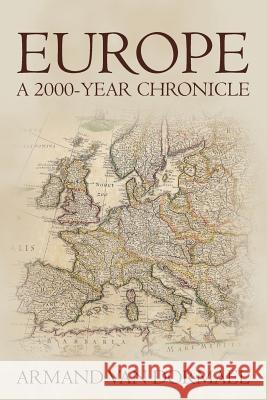Europe A 2000-Year Chronicle » książka
Europe A 2000-Year Chronicle
ISBN-13: 9781490319926 / Angielski / Miękka / 2013 / 406 str.
Rome succeeded Greece as the dominant Mediterranean civilization. Emperor Constantine declared Christianity state religion. The Visigoths invaded Rome, which led to the end of the empire and marked the beginning of the Middle Ages. The Vikings dominated the period from the late 700s to the middle 1000s. They settled in Northern France and expanded through much of Europe. The Crusaders established trade routes that opened the way for the merchant republics of Genoa and Venice. The Renaissance saw the revival of classical learning and of the values of ancient Greece and Rome. Growing prosperity, the development of the printing press and the discovery of new continents led to the flowering of philosophy, literature and the arts. Beginning in the 1500s, European navigators conducted explorations that established direct links with Africa, the Americas and Asia. Britain led the world through the first industrial revolutiion which saw steam engines replace human labor in industry. During the second industrial revolution, its position as the world leader in industry was lost to Germany. European overseas expansion led to the rise of colonial empires which allowed the development of new industries. In the 19th century, Europe launched a new period of colonial expnsion.and was in a position of global dominance. Rivalry and the scamble for power led to the outbreak of the first world war. Conditions imposed on Germany by the Treaty of Versailles followed by the Great Depression led to the second world war. In 1939, German troops invaded Poland. France and Germany declared war. The United States and the Soviet Union emerged from the war as the tw global superpowers. In 1958, the European Economic Community was established.
Zawartość książki może nie spełniać oczekiwań – reklamacje nie obejmują treści, która mogła nie być redakcyjnie ani merytorycznie opracowana.











